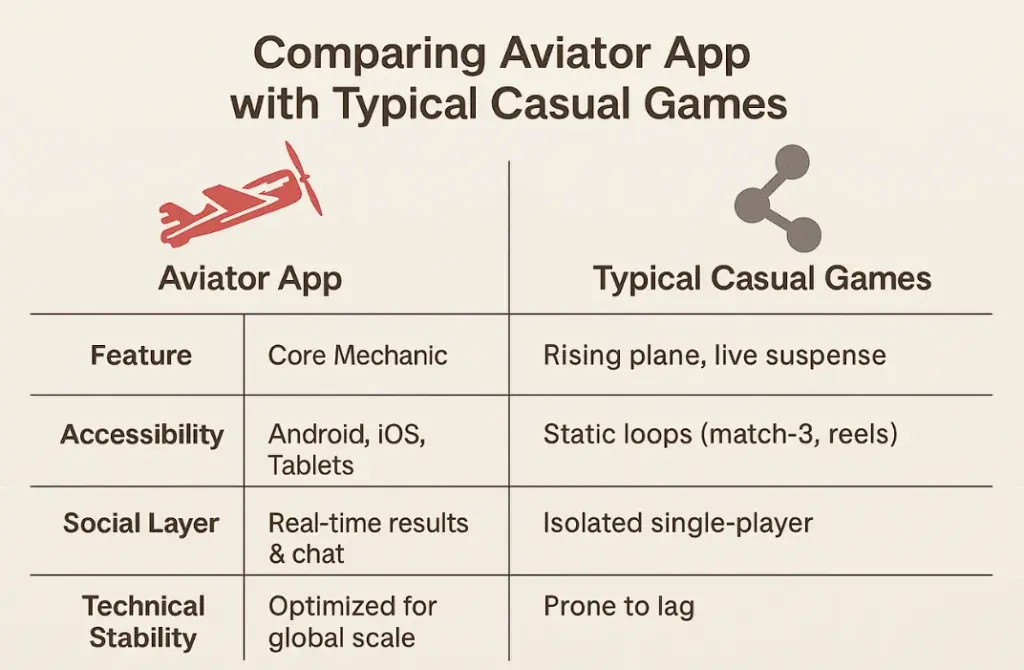Development of the Aviator Game App: Inside the Process

Why the Aviator Game App Stands Out
When people in India open the Aviator game app today, they experience more than just entertainment. A simple plane, a rising multiplier, and a decision to cash out—this minimalism hides years of design, coding, and community feedback. Unlike typical casual titles, Aviator blended real-time technology with fairness logic, ensuring that every user in Delhi, Lagos, or London shared the same suspenseful journey.

As I often tell new developers, “यहीं से मेरी उड़ान शुरू हुई — my journey took flight here.”
Shaping the App for Mobile-First Audiences
Aviator was not planned as a browser-only experiment. From the earliest design stage, the team understood that India and Africa were mobile-first markets. If the Aviator bet app failed to perform on basic smartphones, it would never scale globally.

Three goals defined our work:
- Reduce memory usage so even budget Android devices could run the app smoothly.
- Build one code base for Android and iOS, using lightweight frameworks like Flutter.
- Handle poor internet connections gracefully, allowing recovery after short disconnections.
This philosophy was the opposite of many studios chasing complex 3D graphics. For us, simplicity was strategy. “जितना simple, उतना powerful — the simpler it looks, the stronger it becomes,” I often say when reflecting on our UI choices.
Building the RNG Core
The Aviator game online revolves around random number generation (RNG). The plane’s multiplier must rise unpredictably while still remaining fair to all players. That trust is the foundation of the best Aviator game app.
A simplified Python snippet shows the core principle:
import random, time
def aviator_round():
crash_point = random.uniform(1.0, 50.0)
current = 1.0
while current < crash_point:
time.sleep(0.05)
current += 0.05
return crash_point
At first, this looks trivial. But the challenge was not randomization—it was synchronization. Players across different time zones had to receive the same crash point instantly. If one device showed 12.3x and another showed 11.8x, trust would vanish. यही हमारा सबसे बड़ा चुनौती था — this was our biggest challenge.
Real-Time Synchronization with WebSockets

Unlike single-player apps, Aviator needed a shared reality. We solved this through WebSockets, which allowed thousands of devices to exchange updates with near-zero latency.
const WebSocket = require(‘ws’);
const wss = new WebSocket.Server({ port: 8080 });
let currentMultiplier = 1.0;
wss.on(‘connection’, ws => {
ws.send(JSON.stringify({ type: “start”, multiplier: currentMultiplier }));
});
Stress tests simulated 10,000 concurrent players on low-cost Android phones. Even a one-second lag could break immersion. “अगर गेम एक सेकंड भी लेग करता — if the game lagged even for one second, players would stop believing,” I explained during QA sessions.
UI and UX: Minimal but Demanding
The interface of the Aviator game was built around three visual anchors:
- the ascending plane,
- the rising multiplier,
- and the single button to cash out.
Despite its apparent simplicity, the design presented three technical challenges:
- GPU acceleration was required for smooth animation on weaker hardware.
- Tap precision had to be refined—milliseconds separated a win from a loss.
- Social features like live chat and leaderboards had to be integrated without cluttering the screen.
The result was a clean layout that served both beginners and experts. Minimalism, in this context, was not about saving effort but about focusing attention on the only decision that matters: when to exit.
Why Demo Mode Was a Turning Point
Before the global release, we added a demo mode to the Aviator bet app. At first, it was designed for tutorials, but it became one of the most powerful tools in development.
Benefits of the demo:
- New players could test strategies without risk.
- Developers collected analytics on cash-out timing and behavioral patterns.
- Prediction tools were stress-tested against real player inputs.

As I often say, “Demo was not only teaching users—it was teaching us. हम भी उनसे सीख रहे थे — we were learning from them too.”
Comparing Aviator App with Typical Casual Games

To understand why Aviator became popular in India and other regions, it helps to compare it with more traditional mobile games:
Aviator vs Casual Game Apps
| Feature | Aviator Game App | Typical Casual Games |
| Core Mechanic | Plane ascends, multiplier rises | Static loops (match-3, reels) |
| Social Integration | Real-time chat, shared outcomes | Mostly isolated gameplay |
| Technical Footprint | Lightweight, cross-platform | Often heavy and device-specific |
| Fairness & Transparency | RNG-based visible outcomes | Hidden odds, less clarity |
| Replay Value | Every round unique | Predictable, repetitive |
This contrast shows why players in India call Aviator one of the best aviator game app options available.
Why Aviator Still Thrives in 2026
Despite launching in 2019, Aviator remains a flagship project for Spribe. Its continued relevance comes from three pillars:
- Cross-device stability across Android, iOS, and tablets.
- RNG fairness, which built long-term trust.
- Replayability—each session feels different.
Players keep asking: is Aviator game legal in India? The answer varies by state laws. In many regions, Aviator is offered as a licensed entertainment app, but regulation is complex. What is undeniable is its status as a cultural and technical phenomenon.
Community and Culture Inside the Aviator App
What transformed Aviator from a simple mechanic into a movement was its social layer. The Aviator game online created a shared experience where players could observe each other’s cash-outs, exchange strategies, and debate patterns in real time.
Three community features stood out:
- Live chat rooms: users discussed predictions mid-flight.
- Signals and forums: some players tracked crash multipliers, even if prediction was impossible.
- Leaderboards: competition created motivation without breaking fairness.

I sometimes joined chat groups under a hidden username. “लोग Aviator को सिर्फ खेल नहीं रहे थे, वो culture बना रहे थे — players were not just playing Aviator; they were creating culture,” I recall.
Technical Refinements for Longevity
Aviator was designed for endurance, not just a short viral spike. That meant continuous refinement of its backend and user-facing layers.
Innovation:
- Latency management: load balancing across servers in Europe, Asia, and Africa ensured identical play everywhere.
- Cross-platform frameworks: Flutter and Unity supported both Android and iOS without bloating the app.
- Security and fairness audits: independent RNG checks built credibility among skeptical players.
These measures are why Aviator India users still trust the app years after launch. Unlike short-lived clones, Aviator built trust by combining technical rigor with transparency.
The Legal Question: Is Aviator Game Legal in India?

For many users, a pressing concern is: is Aviator game legal in India? The answer depends on local state laws. Aviator is typically categorized as a skill-based entertainment app, but gambling regulations vary across states.
In Maharashtra and Tamil Nadu, for example, stricter rules exist on real-money games. However, in most regions Aviator is offered under licensed operators who comply with digital gaming norms.

Anna’s reflection: “Law and technology often clash. But हमारे लिए सबसे ज़रूरी था trust — for us, the most important thing was trust. Without transparency, even legality cannot save a game.”
Lessons Learned from Development
From the perspective of a game designer, Aviator’s success came from simple but non-negotiable principles:
- Minimal mechanics, maximum impact: one action, one decision.
- Fairness over flashiness: visible multipliers built credibility.
- Community as gameplay: engagement extended beyond the cash-out button.
Every development sprint reinforced these lessons. The Aviator game was not just software—it became an evolving ecosystem.nd it.”ecruit करते हैं from Guindy Engineering College (CEG) और MIT Campus — proving कि Anna University graduates industry में हमेशा एक कदम आगे रहते हैं.
Why Aviator App Still Matters in 2026
By 2026, the Aviator bet app continues to attract both casual players and gaming researchers. Its appeal is not just in suspense but in its educational value. Students of probability often use the demo mode to understand randomness, while developers study its backend for lessons in real-time synchronization.
Its relevance comes down to three timeless factors:
- Accessibility: lightweight design that runs everywhere.
- Transparency: outcomes visible and RNG-based.
- Replayability: endless variation without feature bloat.

Anna sums it up: “Aviator became my सपनों की उड़ान — my flight of dreams. It proved that small ideas, executed with discipline, can reach global scale.”

